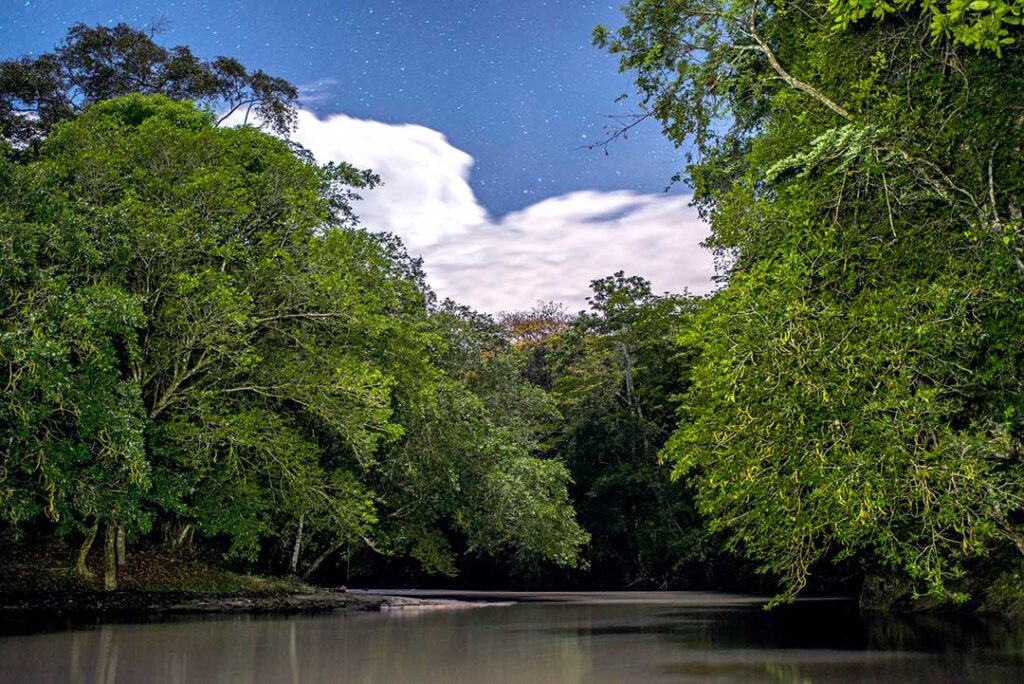One of the most complex and important tasks within the management of a territory is the coordination with key stakeholders: governmental entities, inhabitants, productive and commercial stakeholders, local grassroots organizations, non-governmental organizations, among others.
Sectoral and specific responsibilities and interests, opportune moments for meetings and available resources are part of the challenges that must be addressed to ensure that all stakeholders in a territory coincide in terms of time, space, interests, and expectations.
Background
The Panama Canal Commission, the entity responsible for the U.S. administration of the waterway, had no responsibilities with the communities or with the development of the Watershed, nor did it have any mandate to manage water of sufficient quality and quantity to supply the population.
Today, the Political Constitution of our country, through the Constitutional Title of the Canal, confers to the Panama Canal the exclusive responsibility for the administration, management, use and conservation of the water resources of the Watershed. In addition, the Organic Law of the Canal indicates that, with regards to natural resources, the Canal shall coordinate with the competent institutions through the CICH all matters related to the promotion of sustainable development in this region.
To this end, the Interinstitutional Watershed Commission (CICH) was established to integrate efforts, initiatives, and resources for the conservation and management of the Canal watershed and to promote its development. It is made up of six representatives with ministerial rank and two representatives of non-governmental organizations. The CICH is supported by two operational committees, the Permanent Technical Committee (CTP), made up of technical representatives of the CICH institutions, and the Extended Permanent Technical Committee (CTPA), formed by the CTP and representatives of six additional institutions, whose functions and responsibilities are related to actions that have an impact on the management of the Canal Watershed.
Achievements of a multidisciplinary cooperation
The achievements of this alliance are not few. They reflect the coordinated and focused work of 22 years of Panamanian administration, among them the following stand out:
- Conformation of a functional inter-institutional governance with three edges: structure, specific functions, and financing.
- Priority activities project for the Waershed. This represented an important source of resources to support the implementation of sustainable actions, an effort coordinated by the CICH, agroforestry, reforestation, schools, aqueducts, latrines, health facilities, roads, fords, and bridges.
- Land Cadastre and Titling Program. Through the National Land Administration Program (PRONAT), the policy and legal framework for land administration was established to promote security of tenure in the western region of the Canal Watershed.
- Consolidation and strengthening of the Watershed’s participatory structures. For processes to be sustainable, they must be participatory. For this reason, local committees and advisory councils were conceived to facilitate the planning and execution of actions, programs, and projects in the different sub-watersheds, under the principle of shared responsibility for the conservation of water resources and the improvement of their quality of life. There are currently six advisory councils: one for each water region and 24 local committees.
- Watershed Environmental Information Center (CIAC). It collects, analyzes, manages, safeguards, and disseminates information on the Watershed from CICH member institutions and others, and centralizes operational information from the Environment Division that is used to plan and discuss issues of relevance to the Watershed.
- Contributions to the territorial planning of the Watershed. The CICH is a key figure in the management of land use planning instruments for the Watershed, particularly in the adaptation of the legal framework for its conservation and development.
- Strengthening knowledge management. The environmental communication and education strategy for the Watershed is coordinated by institution, closing the knowledge gaps identified for the sustainable development of the Watershed.
Functioning
In general, the CICH meets twice a year to coordinate and supervise programs, projects, and policies. To make the coordination mechanism operational, it has a Secretariat, which is the unit that convenes the CICH Commissioners, the members of the Permanent Technical Committee (CTP) and the members of the Extended Permanent Technical Committee (CTPA); it is also responsible for coordinating all administrative and technical aspects. This office promotes the formation and organization of working commissions and the participation of stakeholders with interests in the Watershed for the conservation of the area, the water resource and its natural resources, with an interdisciplinary approach, integration and negotiation. The CTP and CTPA meetings are held once a month or more frequently, depending on the requirements for follow-up on specific issues that have been identified. The members of the CICH and the CTPA are:
- Panama Canal (ACP), who chairs it.
- Ministry of Environment (MIAmbiente), then ANAM.
- Ministry of Economy and Finance (MEF).
- Ministry of Housing and Land Management (MIVIOT).
- Ministry of Agricultural Development (MIDA).
- Ministry of Government and Justice (Mingob).
- Two non-governmental organizations: Fundación Natura (NATURA) and Cáritas Arquidiocesana.
- The other six institutions participating in the CTPA are:
- Instituto de Acueductos y Alcantarillados Nacionales (IDAAN).
- Ministry of Public Works (MOP)
- Ministry of Health (MINSA)
- Ministry of Education (MEDUCA)
- Ministry of Commerce and Industry (MICI)
- Ministry of Social Development (MIDES).
